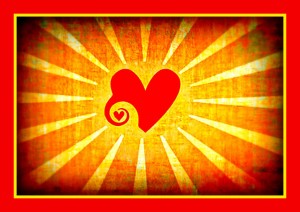E2 : The Nurturer
Type 2
Proffering motherly attention in a covert search of the inverse
Imagine Type 2 as having come into this world catalyzed around a particular aspect of the mother-infant archetypal relationship: the predisposition of the infant Two is toward a powerful conflation of the lovelocked gaze of their mother during nursing and the act of nursing, itself. This forms a broad preoccupation with nurturance, which can actuate in both literal and figurative (emotional) feeding, but food and even nurturance aren’t the thing; reciprocal adoration is the key, the earliest form of mirroring.
There’s a mutual romance here – Mother shares her body as a love object, a warm edematous pillow of holding, and surely something stirs for Her as we drink. To the infant, a nonverbal quasi-erotic promise of ownership is given in this field: I am Yours, and You are Mine, Forever. The sensation of the gaze, the holding, this tactile libidinized connection – the Two, in particular, mistakes these for who they are as a person, and when the sensation is broken there’s a feeling of no longer having a self (ego-flat, as it’s been called). And since the adult Two only ever experienced the idyllic version of this Love sensation as a participant in the hyper-personal mother-infant field, they perceive that the only place to get it back would be within the similar special space of unusually close relationships with other people.
Life then becomes a quest to become that important again to someone, and to people in general. Hence, Two’s classical association with the sin of Pride; which can be understood, at least partly, as the ego’s attempt to reproduce the sensations, feelings, vibrations of the early mother-infant relational circle. But descriptions of E2 typically correlate this type with the mothering role, not with living out an Infant motif. An explanation for the switch-up is that, at an initial stage when Mother is beginning to foster the infant’s individuation and separation, the infant Two’s reaction to the loss of the idyllic state is defiance, a precocious and swift rejection of Mother in response to the betrayal of not remaining in the worshipful state of the mother-infant bond. “You’re supposed to love and adore me; that’s what Other does.”
Such an ultimate betrayal inspires an ultimate response: in the basement of the Family’s psychic home, the child snatches the Mother badge for itself, and sets out to do mothering ‘the right way’, but always with the goal of somehow being rewarded with re-admission into Paradise. And Paradise is the infant role. Self-infantilization can be seen in the way famously overbearing Twos become substantially at the mercy of those they want love from. Two’s psychological growth then is that of a newborn discovering other things in life besides the covert romances they’ve cultivated, finding an identity bigger than just the sensation of gaining that esteem with the targeted Someone.
Two’s Pride is often described as having an underlying sense of entitlement for having served others in some way; they’ve earned it, in other words. But if Pride were distilled down to its full potency, its essence would be revealed as “I’m entitled, period. Because I exist.” Going back, again, to the newborn’s preconceptual narcissistic field of adoration: at an unconscious level, Pride assumes (for Itself) the existence of a pledge, that “this is the way things are supposed to be”, i.e.- the Two should exist in a sanctuary of love, nurturance and adoration. But subsequently “Mom betrayed me by depriving me of it.” The demanding nature of entitlement (guilt trips and manipulation seen in Twos) then reflects the power dynamic of the Rejection types (2, 5, 8), in this case believing that the Other (whomever the Two is in close relations with) is inherently obligated.
At a semi-conscious level, the Two attempts to bring to the surface this sense of obligation that they believe exists somewhere in the other person. The Two’s efforts to earn love and appreciation are intended to amp up the other person’s sense of their own innate indebtedness to the Two, since the other is evidently blind to their obligation, as evidenced by Utopia’s failure to re-emerge. Pride says that the other person’s duty to love the Two is simply part of Nature; but since the Other isn’t ever quite getting right, in the idyllic sense, or they’re sometimes withdrawing or pulling it away, Twos feel the need to magnify the Other’s obligation to the point where they’ll become aware of it. Hence, the underlying manipulative power dynamic; making Other corroborate what Nature decreed as Two’s birthright.
Coming back to the (figurative) formative stage, what naturally falls out from Two’s defiance and turnabout in relation to Mother is a re-orientation toward Father. This new direction becomes an assertive mission of re-unification with the Intimate Other dynamic, a private and closed electrical circuit, with the Two offering some ultimate feminine/nurturing charge as seductive receptor for the opposite polarity of the masculine/father charge; the Two actively urging and inviting the plug that will light up Shangri-La once more. Thus, hijacking father from mother; spawning a triangulation pattern, a pride-based competition with Mother for the prize of most loving and nurturing.
* As alluded to at the start, the above described infant-mother dynamic (and permutations therefrom) isn’t to be considered as having formed or placed the Type structure within Twos – it’s not a literal story of how people become this type – but is an abstraction to gain insight into the Type’s elemental design.
Δ Δ Δ


